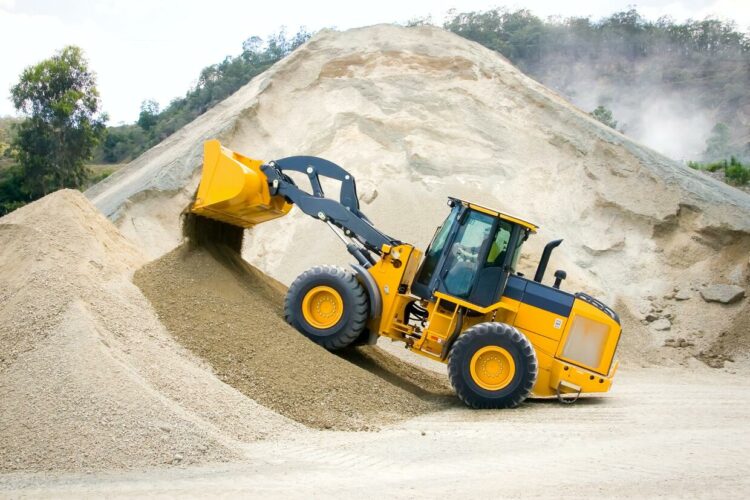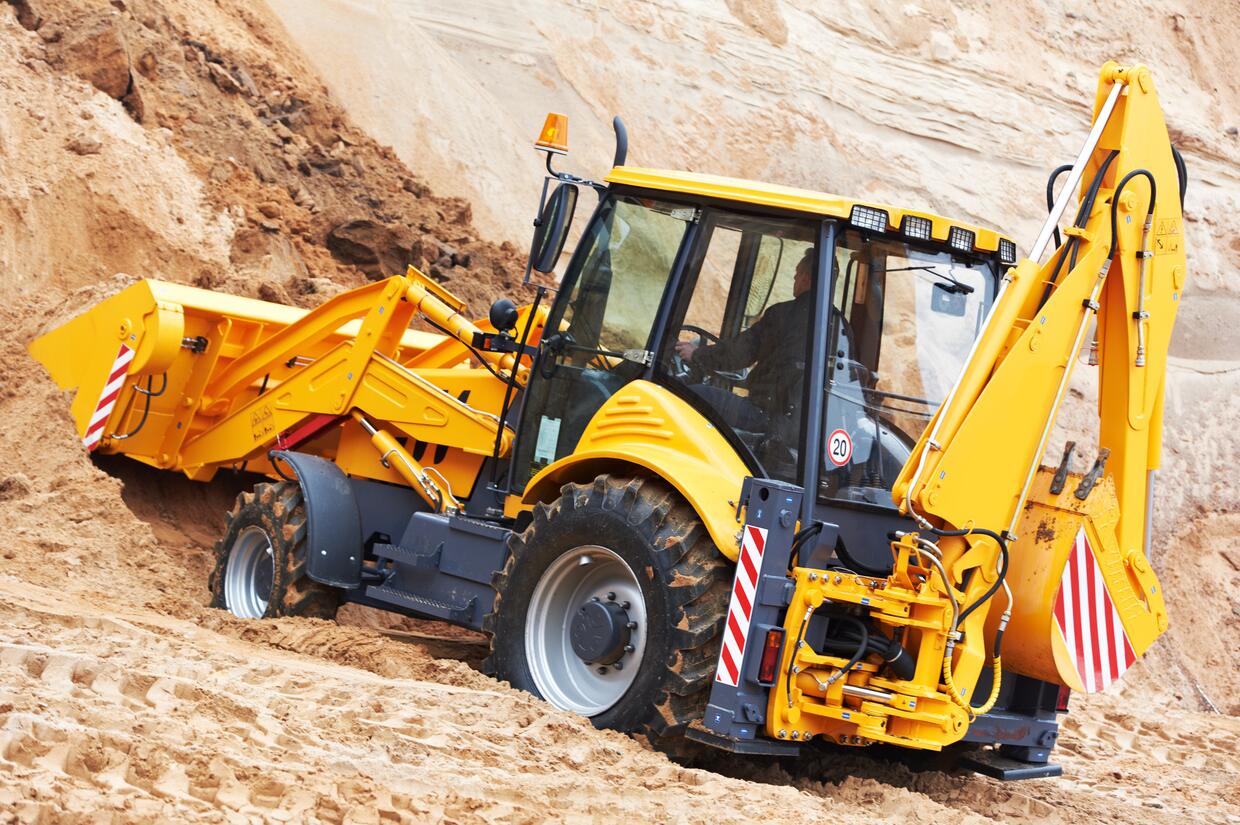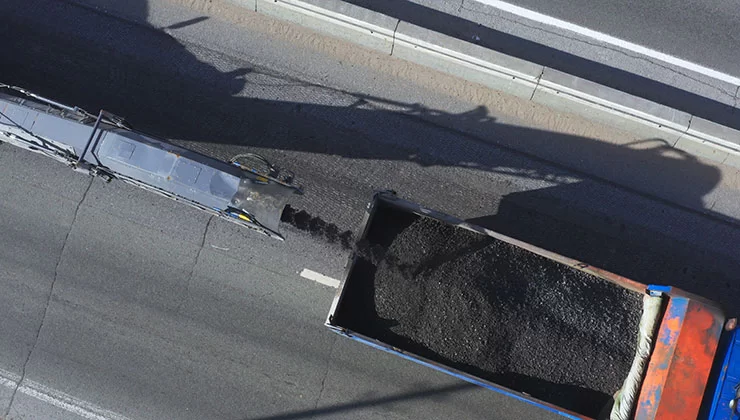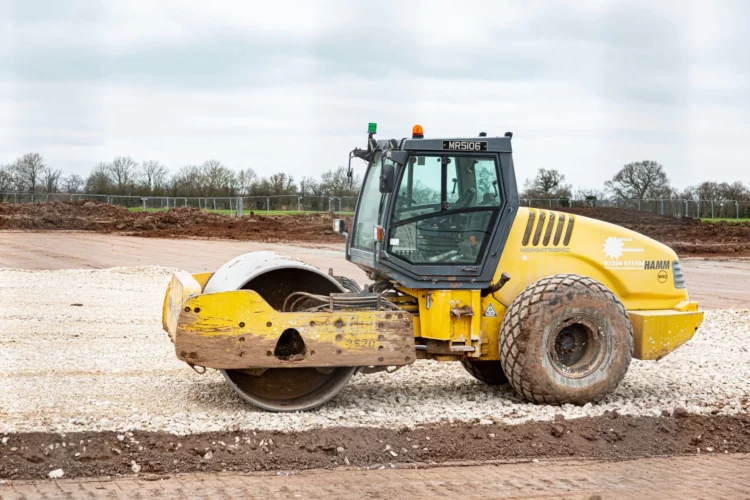Wheel loaders are among the most versatile heavy machinery used in various industries, from construction sites to residential landscaping. These machines have many applications, given their wide range of capabilities, attachments and sizes.
However, choosing the right wheel loader for your job site can become challenging, given the many options available. In this guide, we’ll cover the different types of loaders available, their sizes, loader equipment applications and the factors you should consider when choosing the right one for your site.
Types of Wheel Loaders
Different types of wheel loaders are used in various industries, including agriculture, mining, logging and construction. Most of these machines are equipped with front-loading gear, but others, such as skip loaders, also have arms and attachments at the rear. These machines can be classified using a variety of parameters, including their size, applications, capacity and power.
Skid Steer Loaders
Skid steer loaders are compact and agile machines you can rely on for precision and mobility in rugged terrain. They’re perfect if you need a machine that can work efficiently in tight spaces. For this reason, many professionals rely on them for agriculture, construction and landscaping.
Many use skid steer loaders for commercial and residential jobs. These machines can navigate well on many construction sites, uneven ground and rough terrain. You can choose from small, medium and large frame models.
Small skid steer loaders have a carrying capacity of 1,300 to 1,750 pounds. Medium-frame models, on the other hand, have capacities ranging from 1,750 to 2,200 pounds. Finally, large-frame models can carry loads from 2,200 pounds and more.
| Features | Common Attachments | Applications |
| Equipped with better hydraulics for improved performance | Bucket | Excavation |
| The cabin provides comfortable operating conditions | Pallet fork | Trenching |
| Trencher | Digging | |
| Broom | Snow removal | |
| Snowblower | ||
| Rock saw | ||
| Brush chippers | ||
| Mulcher | ||
| Bale spear | ||
| Backhoe | ||
| Dozer blade | ||
| Auger |
Compact Wheel Loaders
This type of wheel loader is designed to be smaller than regular loaders, making them popular machines in different industries. These machines offer ease of use, efficiency and versatility. Due to their compact design, these machines are capable of better maneuverability while providing lower emissions and better fuel efficiency. They have a shorter wheelbase and sport a narrower width, allowing them to navigate obstacles.
| Features | Common Attachments | Applications |
| Maneuverability | Grapples | Industrial job sites |
| Easily equipped with various attachments | Forks | Agriculture |
| Fuel efficiency | Buckets | Landscaping |
| Durability | Construction |
Backhoe Loaders
Backhoe loaders can be considered hybrid machines combining the features of a wheel loader and a backhoe. They often feature a small frame designed for precision performance, which works well in many construction, excavation, landscaping and smaller job sites.
They can be used to move, scoop and excavate materials. You can expand their capabilities using various attachments, allowing you to get different jobs done using the same machine.
| Features | Common Attachments | Applications |
| Lifting and digging versatility | Grapple | Industrial job sites |
| Precision control | Stump grinder | Agriculture |
| Small frame | Breaker | Landscaping |
| Hammer | Construction | |
| Bucket |
Front End Loaders
This machine is the most common type of wheel loader that many are familiar with. They are equipped with a bucket at the front but can also be attached at the rear. These machines are used for various tasks, including carrying heavy loads, earthmoving, construction materials, clearing dirt and debris, preparing job sites and other heavy-duty tasks. Newer models have been designed with improved drivetrains, making them more durable.
| Features | Common Attachments | Applications |
| Large carrying capacity | Bucket | Quarrying |
| Best suited for heavy lifting jobs | Grappler | Logging |
| Multiple uses and applications | Shovel | Clearing debris |
| Rake | Transporting heavy materials | |
| Lifting jib | ||
| Broom | ||
| Auger |
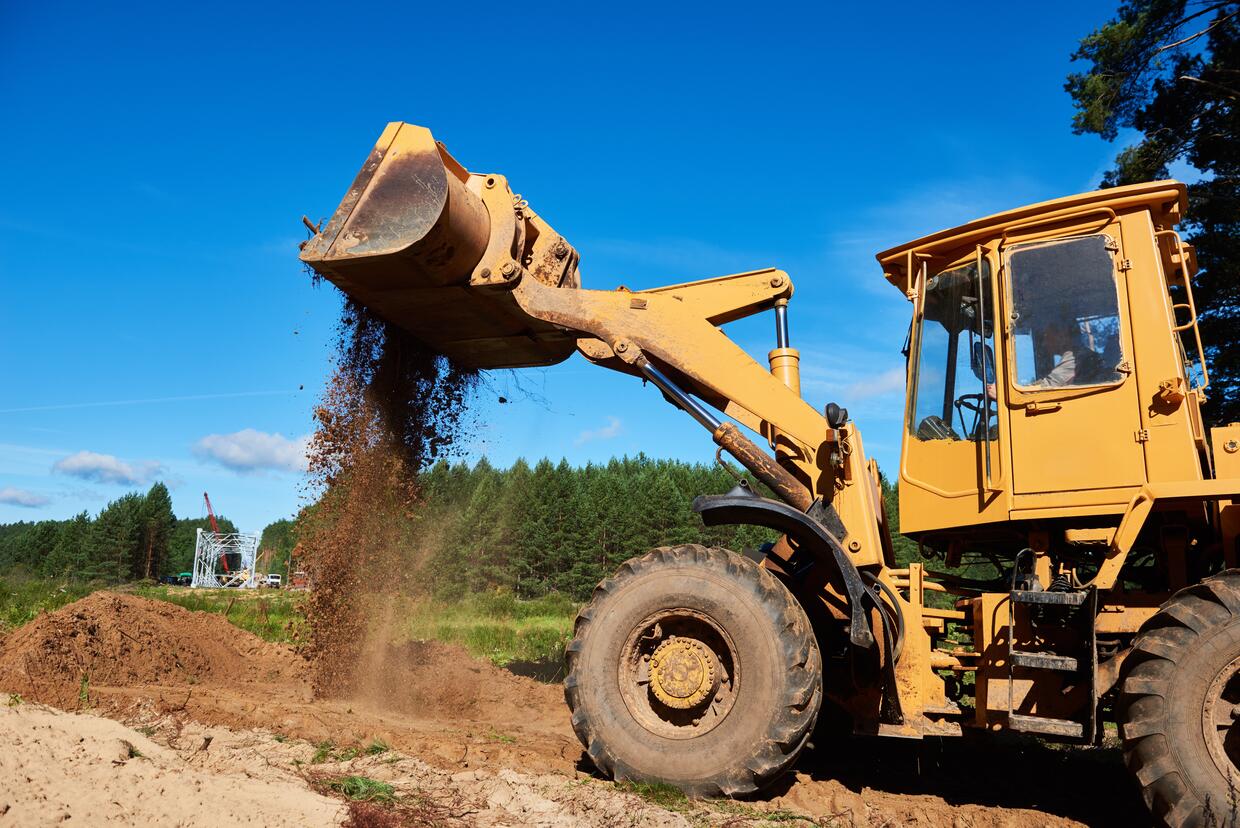
Integrated Tool Carrier (ITC)
This loader equipment features an integrated tool carrier system, allowing it to perform various tasks, including excavation, demolition and material handling. Operators can easily install various tools and attachments, making them valuable on multiple sites. This is one of the versatile machines you can use to reduce operational costs.
| Features | Common Attachments | Applications |
| Large carrying capacity | Buckets | Lifting and transporting heavy loads |
| Integrated tool carrier system | Forks | Construction |
| Environmental operator cab | Hammers | Logging |
| Four wheel drive | Blades | Agriculture |
| High lifting capacity | Brooms | Landscaping |
| Snow removal | ||
| Waste management | ||
| Transporting heavy materials |
Wheel Loader Sizes
It is essential to understand the equipment needs of your project or site, including the material you need to move. Selecting the right-sized wheel loader, including the attachments that best suit your operational needs, is vital. You should consider the size of the loader, its bucket capacity and the length of the arm. These features can spell the difference when looking for better efficiency and productivity.
1. Small and Compact Loaders
This type of loader machinery is best for landscaping businesses and smaller operations. These machines have a one to 4.5-ton capacity, making them an ideal choice for yard and home design projects. These machines typically have a smaller operating weight, less than 20,000 pounds. Aside from landscaping, these machines are also well-suited for light material handling and snow removal.
2. Medium or Mid-Size Loaders
Mid-range loaders often have an operating capacity ranging from 20,000 to 40,000 pounds. Some machines can lift 5.5 to 6.5 tons of material, making them helpful in
moving heavier materials. These machines, such as the 2.5-yard articulated wheel loader, are best suited for construction, quarrying and mining operations.
3. Large Wheel Loaders
These are the largest wheel loaders, with an operating workload of 7.5 to 18 tons or over 40,000 pounds. Examples of these machines include five-yard and four-yard articulated wheel loaders. These machines are perfect for heavy-duty applications, including large-scale construction, mining and quarrying. In addition, these machines are durable and can be used to haul gravel, rocks and hazardous materials.
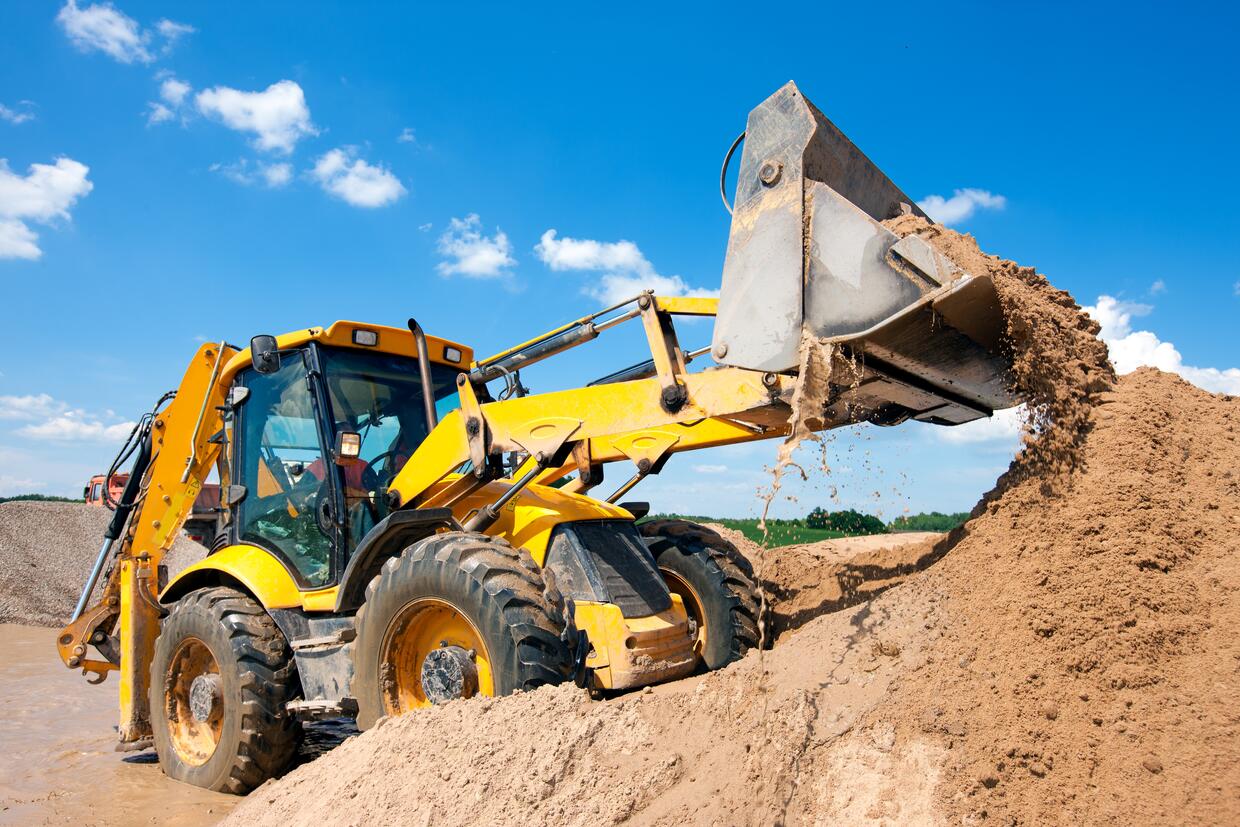
Applications and Uses of Wheel Loaders
Loader machinery is versatile construction equipment used for various tasks. Using the correct loader type maximizes its capabilities, so you don’t have to use other trucks, cranes and other equipment. Consider the following applications and uses of this machinery:
- Construction: Loaders are used extensively in many construction sites for moving heavy materials to be used on the job. They are also used for demolition, grading and excavation.
- Material Handling: This is one of the most common front-loader construction applications. They are used for unloading and loading various materials onto conveyors, trucks and other equipment.
- Waste Management: These machines move and transport waste materials in management facilities. They can load garbage onto compactors for processing in landfills and other locations.
- Block Handling: Many types of wheel loaders can handle huge blocks, which require a lot of heavy lifting. Some machines are designed to operate well, handling heavy block loads despite harsh weather conditions such as rain, wet surfaces and steep ground.
- Forestry: Wheel loaders can be helpful in logging operations, especially when moving materials across rugged terrain. They can climb hilly areas, move lumber and clear parcels of land. In addition, professionals also use them to transport logs, which can be challenging to haul downhill and on other rough terrains.
- Rock Handling: Some loader machines are designed to move rocks and heavy debris. They are built with maximum performance, stability, strength, durability and traction. Further, these machines can withstand rugged operating conditions in hot and dusty environments.
- Snow Removal: Some types of loaders can be equipped with snow blowers and snow plows, which can be used to clear snow on the roads. You can also use them to clear the snow in parking lots, ponds, parks and other public areas.
- Slag Handling: Stony wastewater or slag is usually produced during ore refining and smelting. These materials can make steel mills one of the most dangerous working environments for operators. Wheel loaders designed for slag handling allow operators to move these materials safely and efficiently.
- Landscaping: Landscaping companies can use smaller wheel loaders for landscaping applications. You can use them to move plants, rocks, soil and other landscaping materials. They can also be used to level lawns and grade gardens.
- Mining: You can find many wheel loaders used in mining operations. As teams clear dig sites, they help move rocks, earth and other materials.
- Agriculture: Farmers can also use loaders on farms for tasks such as loading and unloading bales of hay, transporting materials and equipment, moving feed and clearing out barns and other sites.
Wheel loaders are versatile machines that can be used in various applications. For this reason, it is crucial to choose the right loader type for your site. You should consider certain factors when selecting a suitable model and make for your specific application.
Factors to Consider When Choosing a Wheel Loader
Choosing the appropriate types of loaders for your project improves your team’s overall productivity. The machine will be well-tailored to that specific application, allowing you to perform tasks efficiently and save time. Consider the following factors when choosing the type of loader for your site:
- Operating Conditions: The work environment, site location, climate, terrain and other operating conditions should be considered when choosing loader machinery. For instance, using a machine with excellent stability and higher ground clearance for front loader construction work on steep slopes and rough terrain is best.
- Application Type: It is important to choose the right type of loader construction vehicle according to the intended job site application requirements. For instance, a compact or small loader is best suited for light-duty tasks such as material handling or small-scale landscaping. However, if your operations require quarrying or mining, using a heavy-duty large wheel loader is best.
- Capacity: The size and scale of your operations will dictate the loader’s required capacity to ensure operational efficiency. Consider the lift capacity and bucket size of the machine you will use depending on how much material needs to be moved.
- Support and Maintenance: There is always a chance that your loader equipment will break down during regular operations. For this reason, you should consider the amount of maintenance equipment, supplies and support available for the brand and model of front-end loader you will use. Check if the manufacturer or supplier can provide you with the parts and equipment needed for proper maintenance and keep your machine running efficiently.
- Fuel Efficiency: Apart from the availability of parts and maintenance, a loader’s operational efficiency can also cost you. Consider its fuel efficiency since it can affect your operating costs. Choose loaders that have a higher fuel efficiency rating. You may also consider using electric or hybrid wheel loaders if they’re available.
- Budget: Finally, selecting a loader type according to your budget is vital. Using specific models on your job site can cost more. Choosing the loader that gives you more value and versatility for the cost of hiring one is essential. In addition, consider a machine’s performance and efficiency to maximize your investment.
Consider these factors when choosing the right wheel loader equipment for your operations. The goal is to acquire the equipment that can provide efficient and optimal performance for your required application.
Benefits of Using the Right Type of Wheel Loader
Selecting the correct type of wheel loader for your site or project provides several key benefits:
- Increased Productivity: Choosing a loader that is tailored and designed for the specific application you need it for improves your team’s overall productivity and efficiency. You save time, complete tasks faster and become more productive.
- Improved Profitability: Since you can maximize site productivity with the right type of loader, you can maximize your team’s productivity and reduce operational costs. You can take advantage of the versatility of your machine and become more profitable with every project.
- Operator Comfort: Using the correct loader type can improve performance and operator comfort. This way, you can create optimal working conditions for your employees.
- Increased Versatility: You can use the right loader construction equipment for various tasks since it is designed for those applications. You don’t need to bring in additional equipment and machinery to complete the same tasks, allowing you to maximize the versatility of wheel loaders.
- Reduced Operational Costs: Using the matching wheel loaders for intended applications reduces maintenance requirements, minimizes the machine’s fuel consumption and maximizes its performance and lifespan.
- Improved Worker Safety: Site safety is one of the prime concerns to keep your site operations optimal. Using the correct loader type for the job site application means you have a machine designed to work best, given the conditions of your working environment. It has better maneuverability and stability. Your operator also benefits from improved visibility, which can reduce the risk of accidents or injuries during your operations.
For these reasons, using the correct type of wheel loader for the specific intended applications is in your best interest. This practice reduces costs, improves your team’s operational efficiency and can increase your profitability.
Work with a Trusted Full-Service Equipment Rental Provider
Suppose you need help determining which loader equipment best suits your projects. In that case, consultants from National Dispatching can provide expert advice and information. Our team has helped hundreds of contractors from a broad range of marketplaces since 1988.
Our expansive network of service sites allows us to reach any construction or job site nationwide. We can get you the necessary equipment to finish the job on time. Please fill out our online contact form today, and our staff will happily answer your questions.

